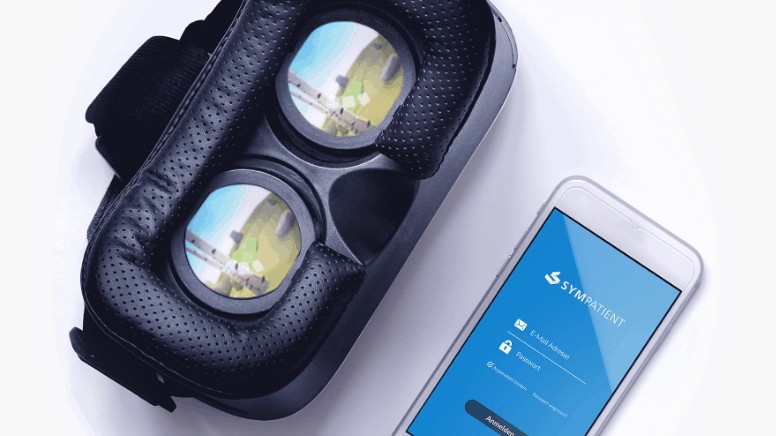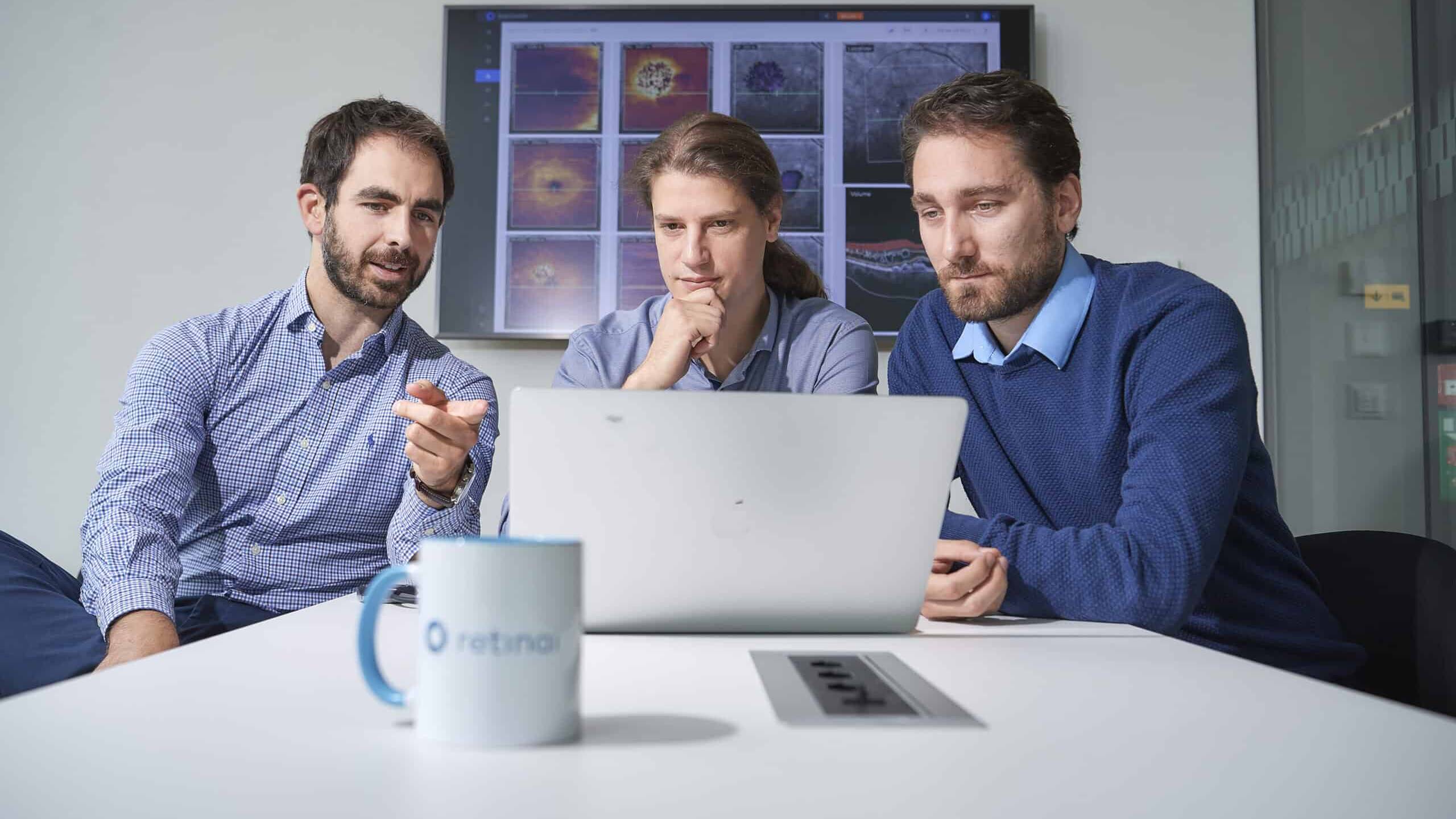Some people believe that the best way to treat a disease is by swallowing a pill. Digital therapeutics propose an alternative. Startup Perfood gives patients precise personalized recommendations on what food to avoid and how to eat to alleviate migraine and diabetes.
Have you ever felt sleepy in the afternoon after eating a big plate of pasta for lunch? Then you have experienced the effects of the interplay between carbohydrates (of which pasta mainly consists) and blood sugar levels firsthand. Avoiding this kind of food coma is easy. A simple habit change such as reducing high-glycemic carb intake could cure after-meal somnolence.
The science behind this is as follows: Blood sugar (blood glucose) is our body’s main source of energy. It comes from the food we eat – the body breaks down the food into glucose and releases it into the bloodstream. When the blood sugar level rises, our pancreas starts producing the hormone insulin. Insulin moves glucose from the blood into different cells in the body (for use in muscles and storage in fat), which reduces the blood sugar level again. When our blood sugar levels are low, we become hungry.
The spike in blood sugar after a meal varies in intensity. High spikes are bad. They can lead to all kinds of diseases: obesity, diabetes, and numerous others. Low blood glucose can lead to migraines. The kind of food that has the potential to raise blood glucose more than others – high carb fares such as white bread or chocolate, for example, have been termed “bad”, while other sources of carbohydrates (that lead to a smaller spike) such as legumes or whole grain bread are considered “good”.
Now comes the surprising part: A landmark publication in 2015 has shown that the blood sugar response to the same food varies from person to person. Not just a bit; the differences are substantial. This means that a commonly accepted “good food” such as muesli for breakfast is indeed good for one person, but might be quite bad for another.
Based on this insight, the startup Perfood has built a successful digital health business and confirmed the publication’s findings. It was founded in 2017 at the Institute of Nutritional Medicine at the University of Lübeck, Germany. The co-founders, Prof. Christian Sina (who is also the Founding Director of the Institute), Dominik Burziwoda, Dr. Christoph Twesten, and Dr. Dr. Torsten Schröder managed to raise a Series A financing round of 5m EUR in 2020 led by Boehringer Ingelheim Venture Fund. Verve Ventures participated in the round.

Invest in Startups
As one of Europe’s most active venture capital investors, we grant qualified private investors access to top-tier European startups. With investments starting at EUR/CHF 10’000, you can build your own tailored portfolio over time and diversify across stages and sectors.
“Perfood’s core business is the human metabolism”, Prof. Sina said in our interview. The company started with a consumer product called MillionFriends. It uses a sensor to track individual responses to what people eat. It applies highly predictive (and patented) algorithms to teach users how to keep their blood sugar levels stable and eat healthy.
The founders’ vision was always more ambitious than just making nutritional self-knowledge useful for health-conscious consumers at scale. They wanted to develop personalized nutrition-based digital therapies that are as effective as medication. The rationale behind it is this: some of the biggest burdens on our healthcare systems have their root causes in unhealthy lifestyles. There is a catch to this, however. Bringing a therapy to the market necessitates regulatory approval. A hurdle that is considerably high.
As co-founder Dominik Burziwoda explains in our interview, getting Perfood’s first digital therapy approved took them 2 years instead of just a few months, as initially planned. Hence, it was also a lot more expensive. But since October 2022, their therapy against migraine (called sinCephalea) has been covered by all statutory health insurance groups in Germany that represent around 70 million citizens. The therapy lasts 3 months. Migraine is the most common one of the over 200 recognized headache disorders. According to estimates, around 14-15% of the global population suffers from migraine.
With this successful start, Perfood is working on several other indications. As it turns out, healthy eating is beneficial for a lot of diseases, including metabolic, inflammatory and neurodegenerative diseases, as well as some forms of cancer.
An obvious target is Diabetes 2, a disease that often afflicts overweight and physically inactive people. Diabetes 2 means that the pancreas doesn’t produce enough insulin to maintain normal blood sugar levels.
In January 2024, Perfood’s second digital therapy targeting Diabetes 2 patients (called Glucura) received reimbursement approval under Germany’s digital health reimbursement framework. Its goal is to facilitate lifestyle changes that reduce elevated blood sugar levels and weight. The first clinical data confirmed the efficacy of the treatment: patients using Glucura for 3 months lost more than 3.6 kg and reduced their blood sugar levels. With its machine learning algorithms, the app provides personalized meal plans tailored to a person’s blood sugar levels. The plans incorporate foods that don’t lead to blood sugar spikes, portion control, and a balanced distribution of macronutrients.
In the future, Perfood will continue to leverage its know-how in nutritional science and digital technology to launch new digital therapies for other indications. A long-term project to develop a digital therapy for intestinal cancer has already started, and Perfood has received a grant of EUR 8m from the German state for it. Moreover, Perfood is now looking to internationalize its products and has hired the first team members in France and the USA.
Written by
WITH US, YOU CANCO-INVEST IN DEEP TECH STARTUPS

Verve's investor network
With annual investments of EUR 60-70 mio, we belong to the top 10% most active startup investors in Europe. We therefore get you into competitive financing rounds alongside other world-class venture capital funds.
We empower you to build your individual portfolio.
More News
17.08.2020
“Our core business is the human metabolism”
Eating right is easier than people think, explains nutritional expert Prof. Christian Sina in this interview. But people need to know how different meals affect them, because the reaction is highly individual. Based on this premise, digital health startup MillionFriends was founded.
03.02.2020
A world premiere in digital health
On the 29th of January 2020, the biggest German health insurance announced the launch of a novel anxiety therapy: Invirto. This premiere is a major milestone for the digital therapeutics startup Sympatient which is developing Invirto. Sympatient’s co-founder and managing director Christian Angern explains how this all came about.
10.04.2019
“We’re democratizing the access to health care”
RetinAI brings AI to eye care. We talked to the co-founder and CEO Carlos Ciller about having Microsoft and Google as competitors, eye scanning devices in your pocket and Berne as the headquarters for their startups.
Startups,Innovation andVenture Capital
Sign up to receive our weekly newsletter and learn about investing in technologies that are changing the world.




